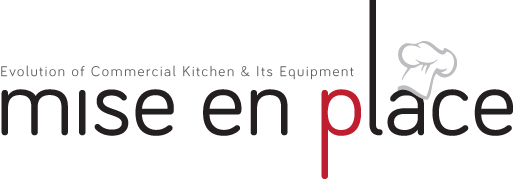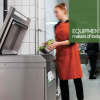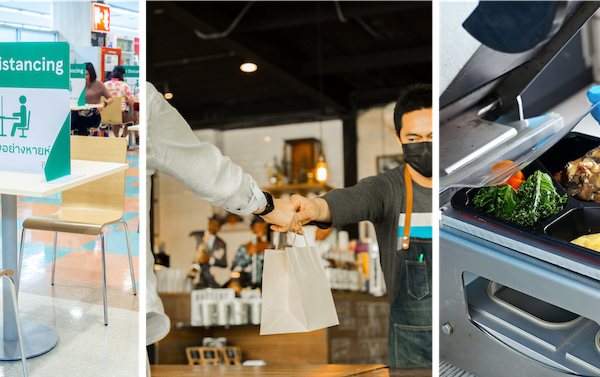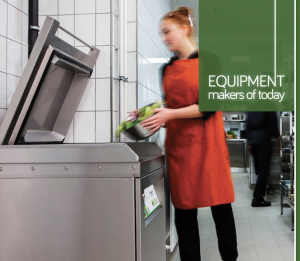
When we hear MEIKO, we think of a leader dedicated to perfecting cleaning and disinfection solutions in the hospitality and foodservice industry. A known name among the hospitality professionals especially for commercial dishwashing, MEIKO needs no introduction. In the recent years, fortunately, MEIKO has decided to expand its territories into sustainability. MEIKO began to set up MEIKO Green, a company solely dedicated to reducing food waste in a much sustainable manner and bringing sustainability to the forefront of the world.
The Green Start to MEIKO Green Solutions
Founded by MEIKO and BioTrans in March 2018, MEIKO Green Waste Solutions combines more than 30 years of experience in food waste management system. MEIKO Green Waste Solutions was a decision made by the MEIKO group to sustain its core focus on commercial dishwashing and food waste management systems, as much as both are linked to one another. At the same time, the innovative solutions were meant to solve a massive problem in hospitality world – arbitrating wastes produced in commercial kitchens. Typically, in the process of dishwashing, most organic waste finds its point of origin at the dish and warewashing areas of commercial kitchens.
To offer a portfolio of different solutions addressing this problem, the Swiss company, Biotrans AG was acquired in 2018. Now, the portfolio set outs to support all segments and sizes of commercial kitchens with the necessary, real-time solutions to deal with food waste in a cleaner and simpler way.
The Firestarters of MEIKO Green
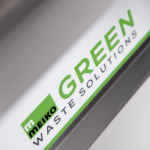 Patrick Hoffmann, the former co-founder and CEO of Biotrans AG, took over the CEO position at MEIKO Green and is currently supported by a team of more than 50 dedicated staff, which is consistently growing in number. Together, the team strives to provide the best solutions for handling food waste, combined with years of experience in the waste management industry. The international business segment, meanwhile, is led by Hannes Braun, who works closely with MEIKO’s local subsidiaries around the world.
Patrick Hoffmann, the former co-founder and CEO of Biotrans AG, took over the CEO position at MEIKO Green and is currently supported by a team of more than 50 dedicated staff, which is consistently growing in number. Together, the team strives to provide the best solutions for handling food waste, combined with years of experience in the waste management industry. The international business segment, meanwhile, is led by Hannes Braun, who works closely with MEIKO’s local subsidiaries around the world.
When Industry Expertise Comes into Play
With over 90 years of expertise in the world of commercial dishwashing, MEIKO identified that the handling of food waste in commercial kitchens is not only time consuming, but also brings major risks of hygiene to various stakeholders. Let’s start at the points of origin where food waste is stored for some time before it gets manually transported and stored in garbage areas. Here, the likelihood of pests in storage areas increases, accompanying the bad smells. F&B establishments are also prone to the risk of cross-contamination within the premises as logistics ensue.
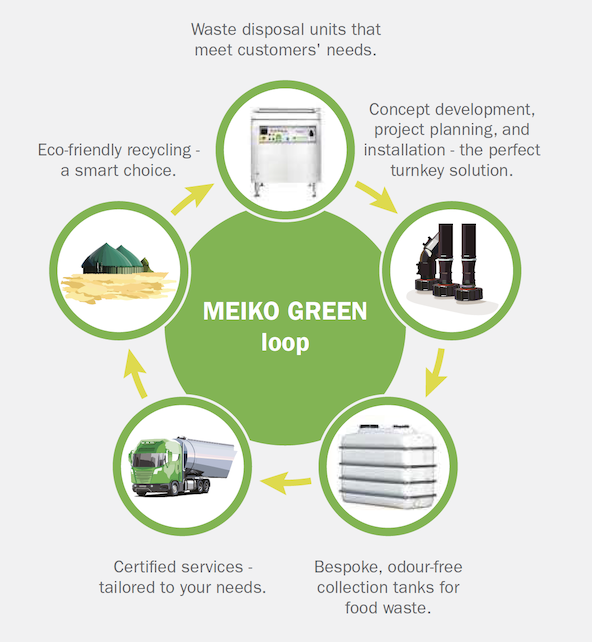
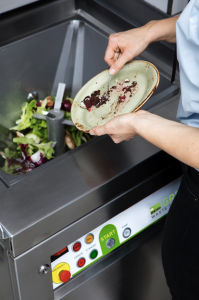 To prevent the adverse risks of the process, MEIKO Green automates the process of transporting food waste through the building. It eliminates hygiene risks and enables kitchen staffs to experience a better and more ergonomic work environment. But this “loop” is not just about the optimal processes and hygiene even as MEIKO Green delivers them as an industry expert. It is about accepting the responsibility implicit in the issue of sustainability while making sure the simplicity of waste management and hygiene are prioritised for F&B establishments.
To prevent the adverse risks of the process, MEIKO Green automates the process of transporting food waste through the building. It eliminates hygiene risks and enables kitchen staffs to experience a better and more ergonomic work environment. But this “loop” is not just about the optimal processes and hygiene even as MEIKO Green delivers them as an industry expert. It is about accepting the responsibility implicit in the issue of sustainability while making sure the simplicity of waste management and hygiene are prioritised for F&B establishments.
Ideally, each F&B establishment should segregate and dispose their food waste in a responsible way. The current larger F&B establishments in hotels are moving towards the direction of a more sustainable disposal of food waste, but most small F&B establishments still dispose their food waste together with their general waste. This contributes to the tremendous filling up of landfills. MEIKO’s goal is to complete the “loop” by harvesting energy and the reusable value in food waste, and use them for environment in a GREEN way.
THE BIGGER, GLOBAL GOAL
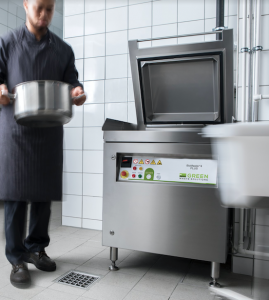 “We follow the global goal of doing positive things for our environment,” MEIKO Green’s team stated. Presently, in Europe, MEIKO Green is leading the industry by using anaerobic digestion plants to process organic waste to produce biogas, which leads to an output of energy and heat. The digestate deriving from the process is used as fertilisers in farming. In other parts of the world, organic waste is still disposed as landfills or diluted together with kitchen wastewater for final treatment in wastewater treatment plants. Yet, regulations are constantly changing around the globe as a way of accommodating a more sustainable and economical society.
“We follow the global goal of doing positive things for our environment,” MEIKO Green’s team stated. Presently, in Europe, MEIKO Green is leading the industry by using anaerobic digestion plants to process organic waste to produce biogas, which leads to an output of energy and heat. The digestate deriving from the process is used as fertilisers in farming. In other parts of the world, organic waste is still disposed as landfills or diluted together with kitchen wastewater for final treatment in wastewater treatment plants. Yet, regulations are constantly changing around the globe as a way of accommodating a more sustainable and economical society.
But without the right technology, that is nearly impossible. Thus, MEIKO Green’s portfolio is set up to support these global developments with the necessary technology. This involves the precise analysis of waste workflows for different F&B establishments, providing tailor-made solutions for them, and customising the installation of MEIKO Green’s systems.
Q&A SEGMENT
DEBUNKING THE MYTHS OF WASTE MANAGEMENT
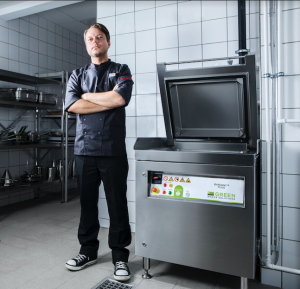 Waste management also brings various versions of truth and palettes of discussions when the question “why people do not manage their waste properly” arises. To uncover the truth, let’s allow MEIKO Green to debunk some of the myths surrounding the question:
Waste management also brings various versions of truth and palettes of discussions when the question “why people do not manage their waste properly” arises. To uncover the truth, let’s allow MEIKO Green to debunk some of the myths surrounding the question:
“Waste management is expensive to operate.”
Yes, a food waste management system certainly comes with an investment. But when an F&B establishment views it in the long term (perhaps, over 10 years), its financial benefits prevail. Savings in terms of disposal cost, pest control, energy, plastic bags, and even time amongst other savings have to be evaluated in details to obtain a clear picture of the return of investment. Additionally, possible changes in regulations in the future must be considered as early as today when making this decision. Regulations such as making the adoption of grease separator mandatory in many regions of the world, will definitely put F&B establishments in tough spots to follow. Apart from financial benefits, we should also avoid underestimating the social and environmental aspects that are rising on the global spotlight. Some governmental bodies are beginning to thread on the movement by accommodating regional funding of grants for businesses that invest in more sustainable alternatives.
“Waste management demands space.”
According to MEIKO Green’s analysis of current F&B operations, it is found that in most cases, the current space availability for the organic waste disposal process is enough as to install a food waste management system. But space demands can be an issue for some F&B establishments if the amount of food waste exceeds the amount that can be treated on site. In that case, MEIKO Green recommends the grouping of a several establishments to cater to a mid-size food waste system for onsite treatment. If the food waste is to be transported away from the premise, MEIKO Green can cater to small units of food waste grinders suitable for smaller spaces. As a matter of fact, a proper, planned food waste system would help reduce the space needed for a commercial building bin centre since the wet waste will no longer be there!
“Waste management demands labour.”
MEIKO Green believes that eliminating the manual transportation of food waste throughout the F&B establishments can bring significant time savings. This is due to the elimination of logistics and regular cleaning procedures for corridors, lifts, and storage areas where organic waste has been carried through. Because MEIKO Green’s automated food waste transporting system allows food waste to be entirely pumped or vacuumed from the infeed station directly to the storage tanks or any on-site food waste treatment, the need for labour is significantly reduced. In other words, the manual transporting of food waste can be finally eliminated.
THE PRODUCTS WITHIN THE “LOOP”
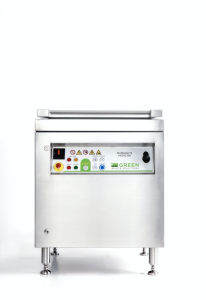
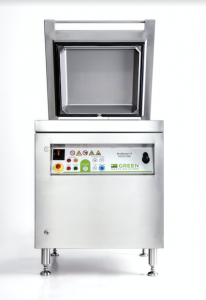 MEIKO Green offers a wide portfolio that covers all aspects of food waste management. Dewatering units, connections to composters and digesters, as well as closed pump and vacuum systems with storage tanks create some of its biggest portfolio in the industry. The adoption of these products depends on the area of operation and the necessary regional back end solution for a particular F&B establishment, which weighs in local infrastructures and government regulations. Yet, as turn-key solutions provider for commercial kitchens, MEIKO Green working with different key players in the industry around the globe to provide best fit solutions, some of which include – Biomaster Slim, Biomaster 4Plus, Biomaster 4Highline, Wastestar AZP80 and Wastestar FC.
MEIKO Green offers a wide portfolio that covers all aspects of food waste management. Dewatering units, connections to composters and digesters, as well as closed pump and vacuum systems with storage tanks create some of its biggest portfolio in the industry. The adoption of these products depends on the area of operation and the necessary regional back end solution for a particular F&B establishment, which weighs in local infrastructures and government regulations. Yet, as turn-key solutions provider for commercial kitchens, MEIKO Green working with different key players in the industry around the globe to provide best fit solutions, some of which include – Biomaster Slim, Biomaster 4Plus, Biomaster 4Highline, Wastestar AZP80 and Wastestar FC.
HOW F&B ESTABLISHMENTS CAN GET STARTED
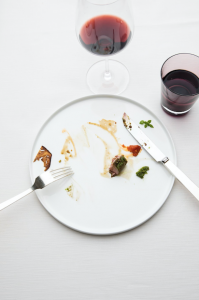 Primarily, F&B establishments should dedicate their operational focus to reducing food waste, where most savings can be made. Understanding the local regulations and also knowing how best to dispose these waste materials, be it dry compost, liquid fertiliser or grey water will make it an easier task to comply, without disruption to your daily operations. On that note, MEIKO Green believes that any newly-designed kitchen operation should include an intelligent food waste management system in its overall concept at the very beginning to further support a zero waste operation.
Primarily, F&B establishments should dedicate their operational focus to reducing food waste, where most savings can be made. Understanding the local regulations and also knowing how best to dispose these waste materials, be it dry compost, liquid fertiliser or grey water will make it an easier task to comply, without disruption to your daily operations. On that note, MEIKO Green believes that any newly-designed kitchen operation should include an intelligent food waste management system in its overall concept at the very beginning to further support a zero waste operation.
As more countries get on board to protect Mother Earth, there might already be initiatives implemented locally that Meiko Green advises this, “Do keep an eye on local authorities’ environmental policy, some funding or subsidy might be available!”.
Taking the first step is always tough but as more people in the community understand what we can do better for the environment, MEIKO Green will continue to provide sustainable solutions for waste management with passion, conviction and expertise.
For more information, you may contact MEIKO Green:

Tel : +60 3 6151 5461
Website : www.meiko-green.com
Address :
MEIKO GREEN Waste Solutions,
8, Lorong Teknologi C (OMNI) Taman Sains Selangor 1,
Kota Damansara, 47810 Petaling Jaya,
Malaysia.
Email : green@meiko-asia.com
